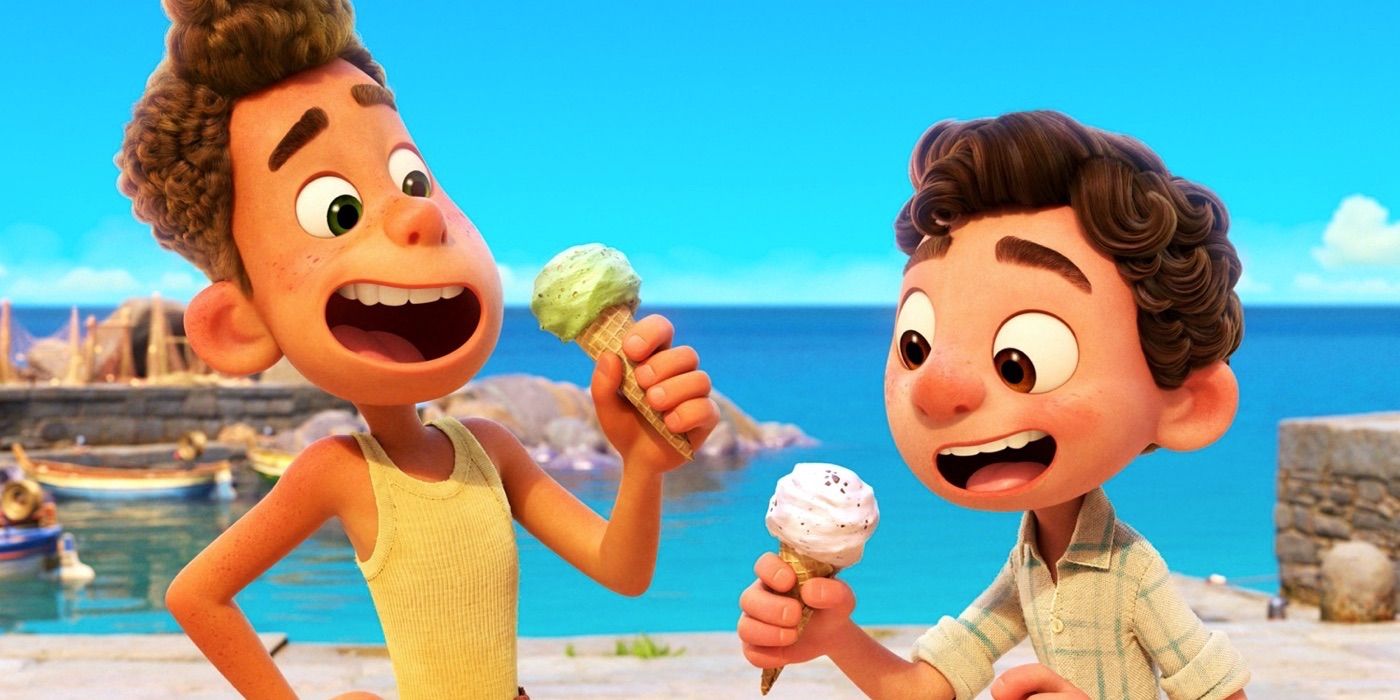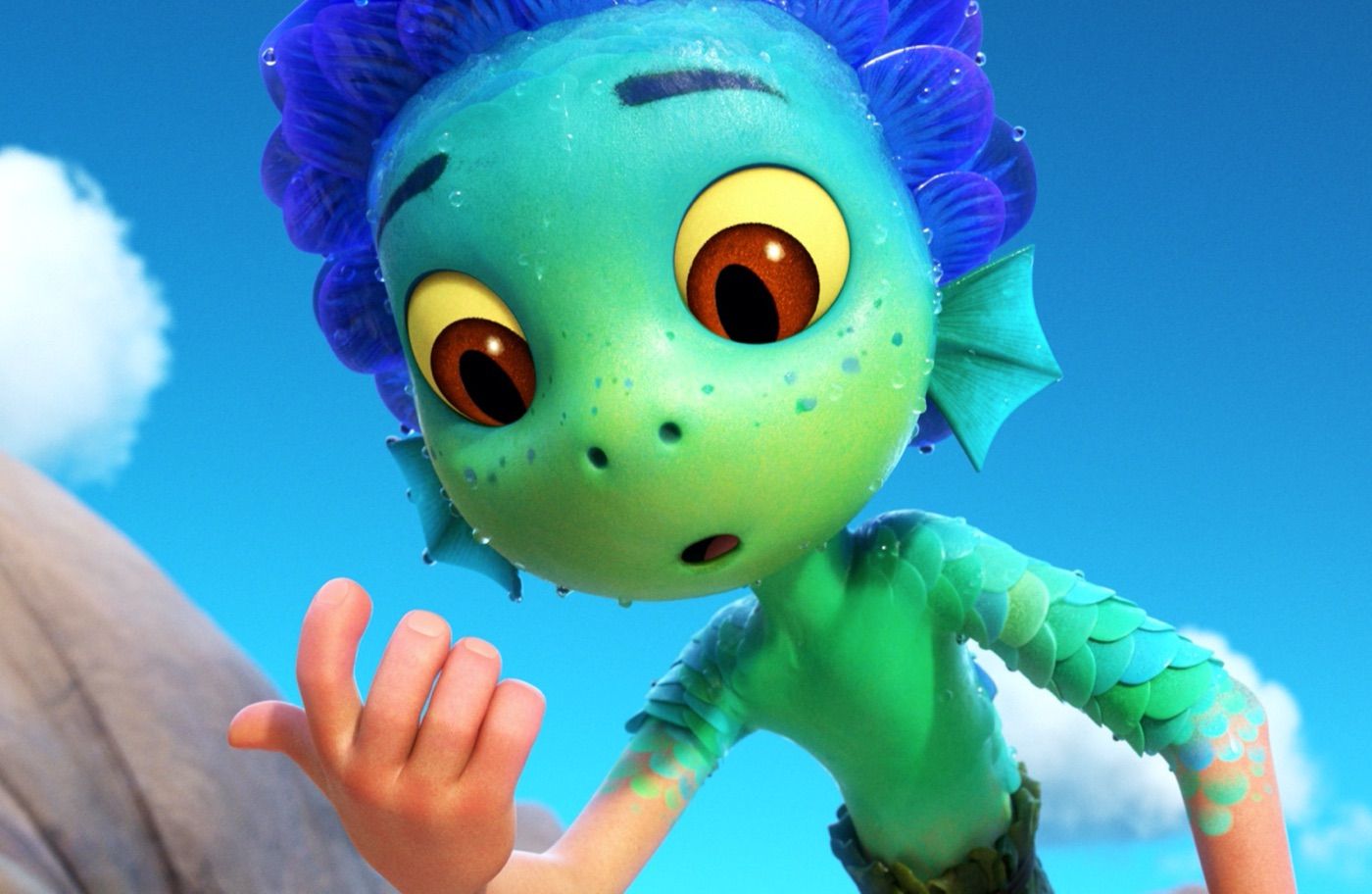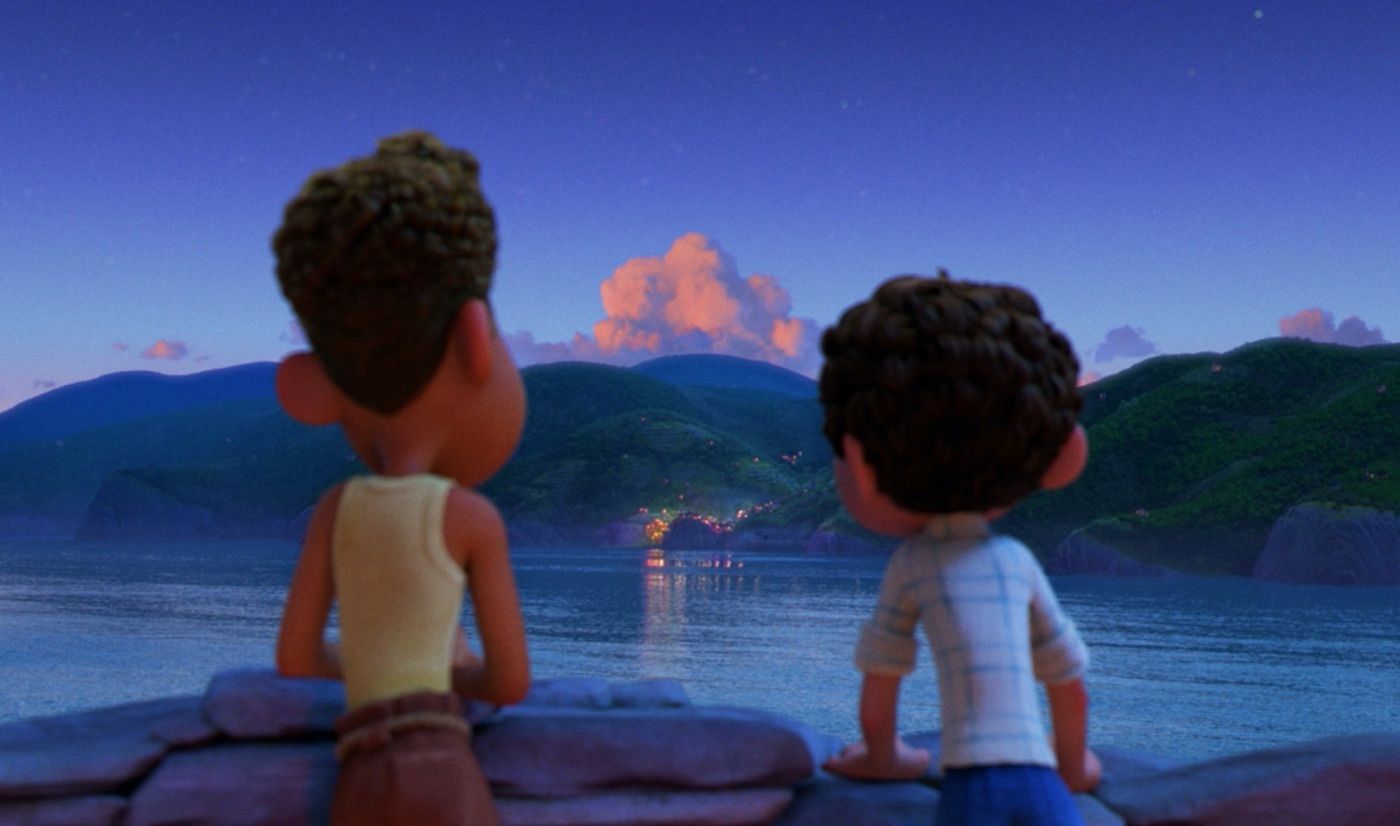Luca is an unusual entry in Pixar’s filmography. On its surface, it seems almost slight. It aims for a small canvas and appears to be a story about a couple of sea monsters masquerading as humans who hope to win a Vespa in a small post-war Italian town. But if you examine the film’s subtext, you can see that it’s arguably one of the animation studio’s most bold and daring movies as it embraces a story of first love between two adolescent boys. Of course, Pixar is owned by Disney, and Disney is the studio that wants to do victory laps when a supporting character dances with a man. Hollywood films need to open not only for American audiences who harbor their own prejudices, but also international audiences that can share those prejudices against the LGBTQ+ community. It’s easy to change your corporate Twitter avatar to a rainbow; it’s harder to tell a story that says love is love even if it’s between two people of the same gender. In 2021, Luca may be as far as a major studio is willing to venture, but it still manages to be a sweet, charming film about first love couched in an underdog/outsider narrative.
Luca (Jacob Tremblay) is a sea monster who spends his days herding fish, but he’s enchanted by the possibility of going up to the surface even though his parents Daniela (Maya Rudolph) and Lorenzo (Jim Gaffigan) have warned him about the brutal “land monsters” who inhabit it. But when Luca meets Alberto (Jack Dylan Grazer), a daring free-spirit who has no problem going up to the surface, Luca finds himself excited about the possibilities, especially when they start building their own Vespa. When Luca’s parents discover that he’s been making his way to the surface, they threaten to send him to The Deep with his weird uncle (Sacha Baron Cohen). Luca then flees with Alberto to the nearby village of Portorosso where they’re able to masquerade as humans as long as they don’t get wet. Whenever water touches their skin, they show their true form, but they feel that it’s worth the risk to get a Vespa. They find their chance when they come across Giulia (Emma Berman), a young girl who wants to win the annual Portorosso Cup. Teaming up with Giulia, the boys see a way to the prize money that will get them their Vespa, but the more time they spend in the human world, the more it starts to strain their relationship. Meanwhile, Daniela and Lorenzo also make their way to Portorosso to find Luca and spend their time dumping water on the local children so they can find their son.
At first glance (and honestly, a glance that will preoccupy most of the kids who watch this movie), Luca is a simple story about two kids who are hiding the fact that their sea monsters, but they need to win the big race to get a motorscooter. You can easily enjoy Luca on this level because it’s like a lot of other Pixar movies: a buddy story set in a colorful environment that’s both charming and funny. The fact that there’s an entire subplot about two overprotective parents dousing children with water is the film’s comfort zone, and you can easily take in the breezy scenery and light narrative if you’d like. I’d go so far as to argue that the one element that works in favor of the film’s Disney+ release is that you can pause the film to go price trips of Italy and Vespas, which you’ll absolutely do as soon as humanly possibly.
Where Luca becomes something special is in the relationship between Luca and Alberto. On the one hand, you argue that their relationship is simply broad enough to encompass anyone who feels like an outsider. But I would counter that the film isn’t simply a story about “outsiders” but about people who must feel the need to pass as something they’re not because the world will perceive them as monsters. Even here, you could argue that perhaps this means religious minorities. But when the core of your movie is about the bond between Luca and Alberto, you have something different. At any point, Pixar could have made either Luca or Alberto the opposite gender of their co-star. They chose not to. They chose to make them two young boys who are hiding from the world but know the truth about each other. When they have an argument and Alberto shouts at Luca about Giulia, “What happens when she sees you? When anyone sees you?” this is a story about two people trying to figure out how they can be true to themselves in a world that rejects that truth. And you can hide it for a period, but at some point, to live your full life, you have to come out even if the world isn’t ready to handle it.
The emotional depth and richness between Luca and Alberto makes this different than just a typical Pixar buddy movie. This is not the same kind of relationship as Woody and Buzz in Toy Story or Mike and Sully in Monsters, Inc. or any of the other central relationships happening in Pixar’s movies. There’s a romantic connection here, but Pixar has constructed it in such a way as to try and get the benefit of the coding without ruffling any feathers that would want to shout that a homosexual relationship is not “family-friendly” (as if gay families don’t count for some reason other than bigotry). Presumably, there will be those who feel like Luca doesn’t go far enough, and I’d agree that one could always go further in making the point that love is love, and yet the film is making its own case about why people feel the need to hide.
Luca, in its own way, is the sea monster, dipping his toe in the water and seeing if anyone freaks outs because it now appears a bit scaly. There is a point where you could see Luca as broad enough to encompass anyone who has ever felt different, but that film would feel fairly unrewarding, and it would lack the specificity that Luca brings to the relationship between Luca and Alberto. The way these characters interact and the strength of their emotions towards each other is not just “two good buddies.” At its core, Luca is a love story, and that’s what makes it so lovely.
Rating: A-



